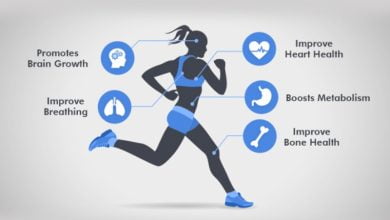Harnessing Influence: The Role of Bloggers in Shaping Health and Wellness

Introduction:
In today’s digital era, where information is abundant and readily accessible, bloggers wield significant influence in shaping public perceptions and behaviors, particularly in the realm of health and wellness. With their unique blend of authenticity, expertise, and relatability, bloggers serve as trusted guides, advocates, and motivators for individuals seeking to prioritize their well-being. In this comprehensive exploration, we delve into the multifaceted role of bloggers in promoting health awareness, fostering positive behavior change, and driving innovation in the ever-evolving landscape of wellness.
Bridging the Information Gap:
One of the primary roles of health bloggers is to bridge the information gap between scientific research and mainstream audiences. In an era inundated with misinformation and conflicting advice, bloggers serve as translators, distilling complex medical concepts and research findings into accessible, actionable insights for their readers.Through evidence-based articles, expert interviews, and data-driven analysis, bloggers empower their audience with knowledge, enabling them to make informed decisions about their health. Whether it’s deciphering the latest nutrition trends, understanding the benefits of exercise, or debunking myths surrounding certain medical conditions, bloggers play a crucial role in promoting health literacy and fostering a deeper understanding of preventive care.Moreover, bloggers leverage their platforms to raise awareness about pressing health issues and advocate for public health initiatives. From campaigns promoting vaccination awareness to fundraisers for medical research, bloggers use their influence to mobilize their audience towards collective action in support of important health causes.
Inspiring Behavior Change:
Beyond disseminating information, health bloggers inspire and motivate individuals to adopt healthier habits and lifestyles. Through personal narratives, success stories, and transparent accounts of their own health journeys, bloggers connect with their audience on an emotional level, fostering a sense of empathy, relatability, and shared experience.By showcasing real-life examples of transformation and resilience, bloggers instill hope, determination, and a belief in the possibility of change. Whether it’s overcoming obstacles, breaking through plateaus, or navigating setbacks, bloggers provide invaluable support and encouragement to their readers,empowering them to overcome challenges and stay committed to their health goals.Furthermore, health bloggers leverage the power of social media to create vibrant online communities centered around shared health interests and goals. Through hashtags, challenges, and virtual events, bloggers foster a sense of camaraderie and accountability, where members support and uplift one another on their wellness journey.
Driving Innovation and Accessibility:
In addition to educating and inspiring their audience, health bloggers play a pivotal role in driving innovation and accessibility in the wellness industry. Through product reviews, recommendations, and endorsements, bloggers introduce their audience to innovative health technologies, products, and services that can enhance their well-being.Moreover, bloggers advocate for greater inclusivity and diversity in the wellness space, challenging narrow beauty standards and promoting body positivity. By showcasing a diverse range of voices, perspectives, and experiences, bloggers create a more inclusive and welcoming environment where individuals of all backgrounds feel represented and valued.Furthermore, health bloggers leverage their platforms to advocate for greater access to healthcare resources and services, particularly for underserved communities. Whether it’s raising awareness about healthcare disparities, promoting telemedicine options, or providing information about free or low-cost health resources, bloggers use their influence to address systemic barriers to health and wellness.
Conclusion:
In conclusion, the role of health bloggers in shaping public perceptions, promoting behavior change, and driving innovation in the wellness industry is significant and far-reaching. Through their expertise, authenticity, and passion for helping others, bloggers empower individuals to take control of their health, make informed decisions, and strive for their best selves. As we continue to navigate the complexities of modern life, let us harness the influence of health bloggers as catalysts for positive change and advocates for a healthier, more equitable world.In conclusion, understanding behavior change is essential for personal growth, self-improvement, and achieving goals. By understanding the psychological principles, practical strategies, and real-life examples of behavior change, individuals can embark on a journey of personal transformation that leads to greater fulfillment, well-being, and success. As we continue to navigate the complexities of modern life, let us harness the power of behavior change to unlock our potential and create meaningful change in ourselves and the world around us.
Inspiring Behavior Change: The Power of Influence in Health and Wellness
Introduction:
Behavior change lies at the heart of improving health and wellness outcomes. Yet, inspiring individuals to adopt and maintain healthy habits can be a complex and challenging endeavor. In this comprehensive exploration, we delve into the dynamics of behavior change, examining the role of influencers, educators, and motivators in inspiring individuals to embrace healthier lifestyles. From the psychology behind habit formation to the strategies employed by influencers in the health and wellness space, we uncover the transformative power of inspiration in driving positive behavior change.
Understanding Behavior Change:
Behavior change is a multifaceted process influenced by a myriad of factors, including individual beliefs, social norms, environmental cues, and psychological motivations. At its core, behavior change involves the adoption of new habits, routines, and practices that promote health and well-being while overcoming barriers and challenges that may hinder progress.Psychological theories such as the Transtheoretical Model (TTM) and the Theory of Planned Behavior (TPB) provide valuable frameworks for understanding the stages of behavior change and the factors that influence decision-making. According to these theories, individuals progress through stages such as pre-contemplation, contemplation, preparation, action, and maintenance, with each stage characterized by distinct cognitive processes and motivational factors.Moreover, behavior change is influenced by intrinsic and extrinsic motivators, such as personal goals, social support, incentives, and environmental cues. Successful behavior change interventions often leverage a combination of strategies, including education, goal-setting, self-monitoring, feedback, and social support, to facilitate sustainable change.
The Role of Influencers in Health and Wellness:
In recent years, influencers in the health and wellness space have emerged as powerful catalysts for behavior change. Through their platforms, which may include blogs, social media channels, podcasts, and YouTube channels, influencers share personal stories, insights, and advice on topics such as fitness, nutrition, mental health, and self-care.What sets health and wellness influencers apart is their ability to connect with audiences on a personal level, often sharing their own health journeys, struggles, and triumphs. By showcasing authenticity, vulnerability, and relatability, influencers foster a sense of empathy and connection with their followers, making their messages more impactful and resonant.Moreover, influencers leverage their platforms to provide valuable information, resources, and practical tips for improving health and well-being. Whether it’s sharing workout routines, healthy recipes, mindfulness practices, or mental health strategies, influencers offer a wealth of actionable advice that inspires and empowers individuals to take control of their health.
Strategies for Inspiring Behavior Change:
Several strategies have proven effective in inspiring behavior change and fostering a culture of health and wellness:
Education and Awareness:
Providing individuals with accurate, evidence-based information about the benefits of healthy behaviors and the risks of unhealthy habits can increase awareness and motivate change.
Goal Setting:
Encouraging individuals to set specific, achievable goals helps to clarify intentions, create a sense of purpose, and track progress over time.
Social Support:
Building a supportive community of like-minded individuals who share similar health goals can provide encouragement, accountability, and motivation to stay on track.
Role Modeling:
Demonstrating healthy behaviors through personal example can inspire others to follow suit and adopt similar habits in their own lives.
Feedback and Monitoring:
Providing regular feedback, whether through self-monitoring tools, wearable devices, or coaching sessions, helps individuals track their progress, identify areas for improvement, and stay motivated.
Positive Reinforcement:
Celebrating successes, no matter how small, reinforces positive behaviors and encourages individuals to continue their efforts towards health and wellness.
Case Studies in Successful Behavior Change:
Numerous examples exist of influencers and organizations leveraging the power of inspiration to drive positive behavior change in health and wellness. From fitness trainers who motivate their clients to achieve their fitness goals to nutritionists who educate individuals about the importance of balanced eating, these influencers serve as beacons of inspiration, guiding individuals towards healthier, happier lives.One notable example is the rise of online fitness challenges, where influencers design structured programs that encourage participants to engage in regular exercise, follow a healthy diet, and prioritize self-care. These challenges often incorporate elements of social support, accountability, and motivation, creating a sense of camaraderie and community among participants.Another example is the success of health and wellness retreats, where individuals immerse themselves in a supportive environment focused on healthy living. These retreats offer a combination of education, physical activity, mindfulness practices, and nourishing meals, providing participants with the tools, resources, and inspiration they need to kick start their journey towards better health.
Conclusion:
In conclusion, inspiring behavior change in health and wellness is a dynamic and multifaceted process that requires a combination of education, motivation, and support. Influencers in the health and wellness space play a crucial role in this process, leveraging their platforms to share valuable information, provide inspiration, and foster a sense of community among their followers. By harnessing the power of influence, these influencers empower individuals to adopt healthier habits, overcome obstacles, and thrive in their pursuit of well-being. As we continue to navigate the complexities of modern life, let us draw inspiration from these influencers and their transformative impact on behavior change in health and wellness.In conclusion, understanding behavior change is essential for personal growth, self-improvement, and achieving goals. By understanding the psychological principles, practical strategies, and real-life examples of behavior change, individuals can embark on a journey of personal transformation that leads to greater fulfillment, well-being, and success. As we continue to navigate the complexities of modern life, let us harness the power of behavior change to unlock our potential and create meaningful change in ourselves and the world around us.
The Art and Science of Inspiring Behavior Change: Strategies for Personal Transformation
Introduction:
Behavior change is at the heart of personal growth and improvement. Whether it’s adopting healthier habits, breaking free from destructive patterns, or pursuing ambitious goals, the journey of transformation often begins with a shift in behavior. In this comprehensive exploration, we delve into the art and science of inspiring behavior change, uncovering the psychological principles, practical strategies, and real-life examples that can empower individuals to make positive and lasting changes in their lives.
Understanding Behavior Change:
Behavior change is a complex and dynamic process influenced by a multitude of factors, including individual beliefs, motivations, habits, environmental cues, and social influences. At its core, behavior change involves modifying actions, routines, and habits to align with desired goals and values while overcoming internal and external barriers that may hinder progress. Psychological theories such as the Transtheoretical Model (TTM), Social Cognitive Theory (SCT), and the Theory of Planned Behavior (TPB) provide valuable frameworks for understanding the stages of behavior change and the factors that influence decision-making. These theories highlight the importance of factors such as self-efficacy, motivation, social support, and environmental cues in facilitating behavior change.Moreover, behavior change often follows a cyclical pattern, characterized by stages such as pre-contemplation, contemplation, preparation, action, and maintenance. Each stage presents unique challenges and opportunities, requiring tailored strategies and interventions to support individuals on their journey towards lasting change.
The Role of Inspiration in Behavior Change:
Inspiration serves as a powerful catalyst for behavior change, igniting the spark of motivation and fueling the desire for personal growth and improvement. Whether it’s witnessing the success of others, experiencing a moment of clarity or insight, or tapping into a deep sense of purpose and passion, inspiration has the power to propel individuals towards positive action. Inspirational stories, role models, and mentors play a crucial role in inspiring behavior change. By sharing their own experiences, struggles, and triumphs, these individuals provide a source of hope, encouragement, and guidance for others facing similar challenges. Through their authenticity, vulnerability, and resilience, they demonstrate that transformation is possible, instilling belief and confidence in others to pursue their own path of change.Furthermore, inspiration can be found in the beauty of nature, the wisdom of literature, the power of art, or the resilience of the human spirit. By seeking out sources of inspiration in various forms, individuals can tap into a deeper sense of purpose, meaning, and motivation that fuels their journey of behavior change.
Strategies for Inspiring Behavior Change:
Several strategies can be effective in inspiring behavior change and supporting individuals on their path to personal transformation:
Clarify Values and Goals:
Help individuals clarify their values, priorities, and long-term goals to create a clear vision of what they want to achieve.
Provide Education and Information:
Offer accurate, evidence-based information about the benefits of desired behaviors and the risks of unhealthy habits to increase awareness and motivation.
Foster Self-Efficacy:
Build individuals’ confidence in their ability to change by setting achievable goals, providing opportunities for success, and offering positive feedback and encouragement.
Cultivate Social Support:
Create a supportive environment by fostering connections with friends, family, mentors, and peers who can provide encouragement, accountability, and practical assistance.
Encourage Self-Reflection:
Encourage individuals to reflect on their values, motivations, and behaviors, and identify areas for improvement or change.
Celebrate Progress:
Celebrate small victories and milestones along the way to acknowledge progress, reinforce positive behaviors, and maintain motivation.
Real-Life Examples of Inspiring Behavior Change:
Numerous examples exist of individuals who have successfully inspired behavior change in themselves and others:
Weight Loss Success Stories:
Individuals who have successfully lost weight and transformed their health through lifestyle changes such as diet modification, regular exercise, and behavior modification.
Addiction Recovery:
Individuals who have overcome addiction and substance abuse through programs such as Alcoholics Anonymous, Narcotics Anonymous, or rehabilitation centers.
Career Transitions:
Individuals who have pursued new career paths, launched businesses, or pursued their passions after overcoming fear, self-doubt, or external obstacles.
Environmental Activism:
Individuals who have inspired behavior change by advocating for sustainability, conservation, and eco-friendly practices in their communities.
Conclusion:
In conclusion, inspiring behavior change is both an art and a science, requiring a combination of psychological insights, practical strategies, and real-life examples to empower individuals to make positive and lasting changes in their lives. By understanding the factors that influence behavior change, tapping into sources of inspiration, and implementing effective strategies, individuals can embark on a journey of personal transformation that leads to greater fulfillment, well-being, and success. As we continue to navigate the complexities of modern life, let us harness the power of inspiration to unlock our potential and create meaningful change in ourselves and the world around us.In conclusion, understanding behavior change is essential for personal growth, self-improvement, and achieving goals. By understanding the psychological principles, practical strategies, and real-life examples of behavior change, individuals can embark on a journey of personal transformation that leads to greater fulfillment, well-being, and success. As we continue to navigate the complexities of modern life, let us harness the power of behavior change to unlock our potential and create meaningful change in ourselves and the world around us.
Understanding Behavior Change: The Path to Personal Transformation
Introduction:
Behavior change lies at the heart of personal growth, self-improvement, and achieving goals. Whether it’s adopting healthier habits, breaking free from destructive patterns, or pursuing ambitious aspirations, understanding how behavior change works is essential for success. In this comprehensive exploration, we delve into the intricate mechanisms of behavior change, uncovering the psychological principles, practical strategies, and real-life examples that illuminate the path to personal transformation.
The Psychology of Behavior Change:
Behavior change is a complex and multifaceted process influenced by a myriad of factors, including individual beliefs, motivations, habits, environmental cues, and social influences. At its core, behavior change involves modifying actions, routines, and habits to align with desired goals and values while overcoming internal and external barriers that may hinder progress.
Psychological theories such as the Transtheoretical Model (TTM), Social Cognitive Theory (SCT), and the Theory of Planned Behavior (TPB) provide valuable frameworks for understanding the stages of behavior change and the factors that influence decision-making. These theories highlight the importance of factors such as self-efficacy, motivation, social support, and environmental cues in facilitating behavior change.
The Stages of Behavior Change:
Behavior change often follows a cyclical pattern, characterized by stages such as pre-contemplation, contemplation, preparation, action, and maintenance. Each stage presents unique challenges and opportunities, requiring tailored strategies and interventions to support individuals on their journey towards lasting change.
Pre-Contemplation:
In this stage, individuals may be unaware of the need for change or may be resistant to the idea of making a change. Interventions at this stage often focus on raising awareness, providing education, and addressing ambivalence towards change.
Contemplation:
In this stage, individuals are aware of the need for change but may feel uncertain or conflicted about taking action. Interventions at this stage often focus on exploring motivations, clarifying values, and weighing the pros and cons of change.
Preparation:
In this stage, individuals are committed to making a change and are actively preparing to take action. Interventions at this stage often focus on goal-setting, planning, and building self-efficacy to overcome barriers and obstacles.
Action:
In this stage, individuals are actively implementing behavior change strategies and making tangible progress towards their goals. Interventions at this stage often focus on providing support, reinforcement, and feedback to maintain motivation and momentum.
Maintenance:
In this stage, individuals have successfully changed their behavior and are working to sustain their progress over time. Interventions at this stage often focus on relapse prevention, coping strategies, and long-term support to maintain positive changes.
Strategies for Effective Behavior Change:
Several strategies can be effective in facilitating behavior change and supporting individuals on their path to personal transformation:
Set SMART Goals:
Encourage individuals to set specific, measurable, achievable, relevant, and time-bound goals to create a clear roadmap for change.
Build Self-Efficacy:
Help individuals build confidence in their ability to change by setting small, achievable goals, providing opportunities for success, and offering positive reinforcement and encouragement.
Create a Supportive Environment:
Foster a supportive environment by surrounding individuals with friends, family, mentors, and peers who can provide encouragement, accountability, and practical assistance.
Develop Coping Strategies:
Help individuals develop coping strategies to deal with setbacks, challenges, and obstacles that may arise along the way.
Use Behavior Change Techniques:
Utilize evidence-based behavior change techniques such as self-monitoring, goal-setting, feedback, reinforcement, and social support to facilitate behavior change.
Real-Life Examples of Behavior Change:
Numerous examples exist of individuals who have successfully changed their behavior and transformed their lives:
Weight Loss Success Stories:
Individuals who have successfully lost weight and improved their health through lifestyle changes such as diet modification, regular exercise, and behavior modification.
Smoking Cessation:
Individuals who have quit smoking and overcome nicotine addiction through programs such as smoking cessation counseling, nicotine replacement therapy, and support groups.
Addiction Recovery:
Individuals who have overcome addiction and substance abuse through programs such as Alcoholics Anonymous, Narcotics Anonymous, or rehabilitation centers.
Career Transitions:
Individuals who have pursued new career paths, launched businesses, or pursued their passions after overcoming fear, self-doubt, or external obstacles.
Conclusion:
In conclusion, understanding behavior change is essential for personal growth, self-improvement, and achieving goals. By understanding the psychological principles, practical strategies, and real-life examples of behavior change, individuals can embark on a journey of personal transformation that leads to greater fulfillment, well-being, and success. As we continue to navigate the complexities of modern life, let us harness the power of behavior change to unlock our potential and create meaningful change in ourselves and the world around us.In conclusion, understanding behavior change is essential for personal growth, self-improvement, and achieving goals. By understanding the psychological principles, practical strategies, and real-life examples of behavior change, individuals can embark on a journey of personal transformation that leads to greater fulfillment, well-being, and success. As we continue to navigate the complexities of modern life, let us harness the power of behavior change to unlock our potential and create meaningful change in ourselves and the world around us.




